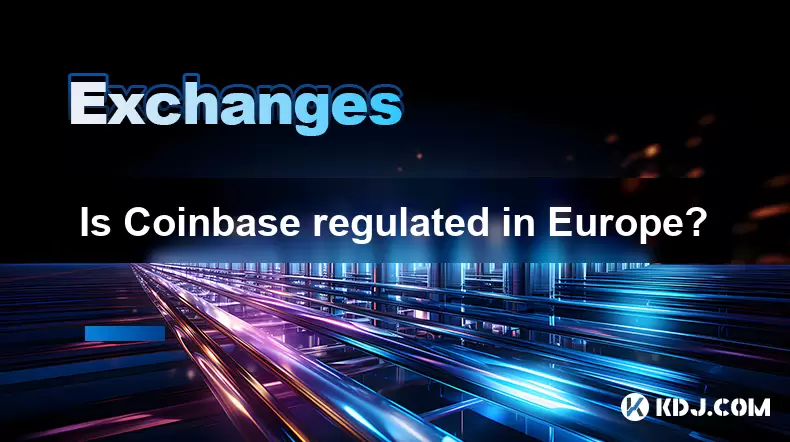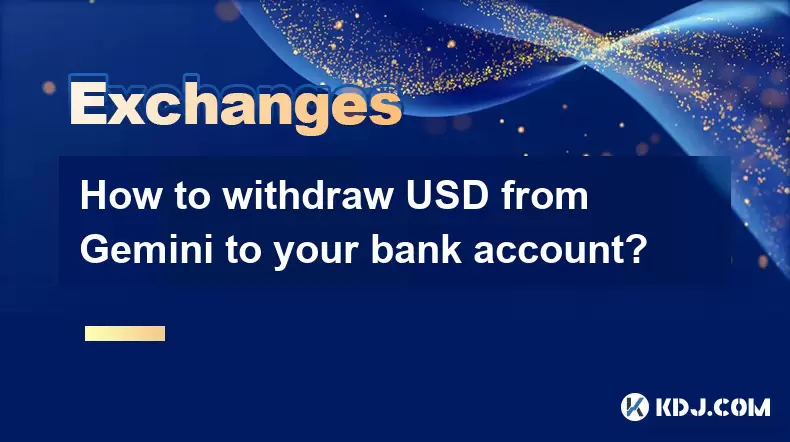-
 Bitcoin
Bitcoin $114400
1.32% -
 Ethereum
Ethereum $3499
2.20% -
 XRP
XRP $2.922
4.26% -
 Tether USDt
Tether USDt $0.0000
0.03% -
 BNB
BNB $752.6
1.53% -
 Solana
Solana $161.8
1.64% -
 USDC
USDC $0.9999
0.01% -
 TRON
TRON $0.3267
1.32% -
 Dogecoin
Dogecoin $0.1991
3.02% -
 Cardano
Cardano $0.7251
3.29% -
 Hyperliquid
Hyperliquid $38.32
3.36% -
 Stellar
Stellar $0.3972
7.58% -
 Sui
Sui $3.437
2.74% -
 Chainlink
Chainlink $16.29
3.65% -
 Bitcoin Cash
Bitcoin Cash $545.3
3.70% -
 Hedera
Hedera $0.2482
7.49% -
 Ethena USDe
Ethena USDe $1.001
0.03% -
 Avalanche
Avalanche $21.40
2.02% -
 Toncoin
Toncoin $3.579
1.56% -
 Litecoin
Litecoin $109.3
2.20% -
 UNUS SED LEO
UNUS SED LEO $8.951
-0.18% -
 Shiba Inu
Shiba Inu $0.00001220
2.75% -
 Polkadot
Polkadot $3.613
2.99% -
 Uniswap
Uniswap $9.173
3.78% -
 Monero
Monero $302.6
2.62% -
 Dai
Dai $0.0000
0.00% -
 Bitget Token
Bitget Token $4.320
1.52% -
 Pepe
Pepe $0.00001048
3.40% -
 Cronos
Cronos $0.1314
4.33% -
 Aave
Aave $259.4
3.54%
Is Coinbase regulated in Europe?
Coinbase expands across Europe, complying with diverse regulations like AMLD5, GDPR, and local licensing requirements to ensure secure and lawful cryptocurrency services.
Jul 08, 2025 at 07:15 am

Overview of Coinbase's Operations in Europe
Coinbase, one of the largest cryptocurrency exchanges globally, has significantly expanded its operations into Europe. The company provides services across multiple European countries, including the United Kingdom, Germany, France, and Spain. As a platform that facilitates the buying, selling, and storage of digital assets, Coinbase must comply with various financial regulations specific to each jurisdiction it operates within.
In Europe, cryptocurrency regulation is not centralized but rather managed at the national level, although there are overarching frameworks like the Anti-Money Laundering Directive (AMLD5) that apply across the European Union. This directive includes virtual asset service providers (VASPs) under its scope, requiring them to implement robust KYC (Know Your Customer) and AML (Anti-Money Laundering) procedures.
Coinbase adheres to these requirements by ensuring that all users residing in EU member states undergo identity verification before accessing certain features on the platform. Additionally, the exchange works closely with local regulators to ensure compliance with national laws regarding taxation, reporting, and licensing obligations.
Licensing and Regulatory Compliance in Specific European Countries
Each country in Europe has its own regulatory body responsible for overseeing financial services, including cryptocurrency platforms. In the United Kingdom, Coinbase is registered with the Financial Conduct Authority (FCA) as a cryptoasset business. Although the FCA does not currently grant full licenses for such entities, registration is mandatory to operate legally.
- Germany: Coinbase is licensed by the Bundesanstalt für Finanzdienstleistungsaufsicht (BaFin), which allows the platform to offer crypto trading and custody services.
- France: The platform complies with regulations enforced by the Autorité des Marchés Financiers (AMF), and it has obtained approval to operate as a Digital Asset Service Provider (DASP).
- Spain: Coinbase follows guidelines set by the Comisión Nacional del Mercado de Valores (CNMV) and reports transactional data as required.
These examples illustrate how Coinbase tailors its compliance strategies according to local regulatory expectations while maintaining a consistent global standard of security and user protection.
Data Privacy and Consumer Protection Measures
Europe enforces strict data privacy laws under the General Data Protection Regulation (GDPR). Since Coinbase handles personal and financial information from users in the EU, it must adhere to GDPR guidelines concerning data collection, processing, and storage. Users have the right to access, correct, or delete their data, and Coinbase must implement appropriate safeguards to protect this information from breaches.
Consumer protection is another critical aspect of operating in Europe. Coinbase ensures transparency by clearly disclosing fees, risks associated with cryptocurrency trading, and mechanisms for dispute resolution. It also maintains segregated accounts for customer funds, minimizing the risk of insolvency impacting user deposits.
Tax Reporting and Transaction Monitoring
Many European countries require cryptocurrency exchanges to report user transactions to tax authorities. Coinbase facilitates this process by providing users with tools to track capital gains and losses. Some jurisdictions, such as Germany and France, mandate automatic reporting of transaction data directly to government agencies.
- Coinbase enables users to generate detailed tax reports through its interface.
- The platform integrates with third-party tax software for seamless reporting.
- Transaction monitoring systems detect suspicious activities and flag them for review.
This proactive approach helps Coinbase stay compliant with evolving tax policies and enhances trust among both users and regulators.
User Verification and Anti-Fraud Protocols
To meet regulatory expectations, Coinbase implements multi-tiered identity verification processes. These include document checks, facial recognition, and address validation. Higher levels of verification unlock additional features, such as increased withdrawal limits and advanced trading options.
Fraud detection is handled through automated systems that analyze user behavior patterns and flag anomalies. Coinbase also employs manual reviews for high-risk transactions and collaborates with law enforcement when necessary.
- Users must upload official identification documents during sign-up.
- Two-factor authentication (2FA) is mandatory for account security.
- Unusual login attempts trigger additional verification steps.
These measures align with European regulatory standards aimed at preventing financial crimes and enhancing cybersecurity resilience.
FAQs
Can I trade derivatives or leveraged products on Coinbase in Europe?
No, Coinbase currently does not offer derivative or leveraged products to retail users in Europe due to regulatory restrictions imposed by ESMA (European Securities and Markets Authority). These restrictions aim to protect retail investors from high-risk financial instruments.
Is my fiat currency insured if Coinbase faces financial difficulties?
Coinbase holds customer fiat funds in segregated bank accounts. However, unlike traditional banking services, these funds are not covered by deposit insurance schemes such as the FDIC (U.S.) or the FSCS (U.K.). Therefore, there is no guaranteed reimbursement in case of insolvency.
How does Coinbase handle sanctions lists and politically exposed persons (PEPs)?
Coinbase uses automated screening tools to check users against global sanctions lists and PEP databases. If a match is found, the account may be restricted or investigated further. This process ensures compliance with international anti-money laundering standards.
Are there any restrictions on transferring crypto between European countries via Coinbase?
Transfers between European countries are generally unrestricted, but users must comply with local reporting requirements. Some countries may impose limits or require declarations for large transfers, so it’s advisable to consult local regulations before initiating cross-border movements.
Disclaimer:info@kdj.com
The information provided is not trading advice. kdj.com does not assume any responsibility for any investments made based on the information provided in this article. Cryptocurrencies are highly volatile and it is highly recommended that you invest with caution after thorough research!
If you believe that the content used on this website infringes your copyright, please contact us immediately (info@kdj.com) and we will delete it promptly.
- Altcoin Rotation, Smart Money, and Investment Trends: What's the Deal?
- 2025-08-04 12:30:11
- Crypto, Pi Network, Movement: Is Pi Coin the Next Big Thing?
- 2025-08-04 12:30:11
- Bitcoin, Metaplanet, and Institutional Confidence: A New Era?
- 2025-08-04 12:50:12
- XRP Price, Ripple CTO, and Tokenized Finance: A New York Minute on Crypto
- 2025-08-04 12:50:12
- Pi Coin: Future Access or Early Adoption Blues?
- 2025-08-04 12:55:11
- Ethereum Liquidations Rock Crypto Market: What's a New Yorker to Do?
- 2025-08-04 13:00:17
Related knowledge

How to set and manage alerts on the Gemini app?
Aug 03,2025 at 11:00am
Understanding the Gemini App Alert SystemThe Gemini app offers users a powerful way to stay informed about their cryptocurrency holdings, price moveme...

How to use the Gemini mobile app to trade on the go?
Aug 04,2025 at 09:14am
Setting Up the Gemini Mobile AppTo begin trading on the go using the Gemini mobile app, the first step is installing the application on your smartphon...

What to do if you forgot your Gemini password?
Aug 04,2025 at 03:42am
Understanding the Role of Passwords in Gemini AccountsWhen using Gemini, a regulated cryptocurrency exchange platform, your password serves as one of ...

What are the websocket feeds available from the Gemini API?
Aug 03,2025 at 07:43pm
Overview of Gemini WebSocket FeedsThe Gemini API provides real-time market data through its WebSocket feeds, enabling developers and traders to receiv...

How to withdraw USD from Gemini to your bank account?
Aug 04,2025 at 11:01am
Understanding Gemini and USD WithdrawalsGemini is a regulated cryptocurrency exchange platform that allows users to buy, sell, trade, and store digita...

How to manage your portfolio on Gemini?
Aug 03,2025 at 10:36am
Accessing Your Gemini Portfolio DashboardTo begin managing your portfolio on Gemini, you must first log in to your account through the official websit...

How to set and manage alerts on the Gemini app?
Aug 03,2025 at 11:00am
Understanding the Gemini App Alert SystemThe Gemini app offers users a powerful way to stay informed about their cryptocurrency holdings, price moveme...

How to use the Gemini mobile app to trade on the go?
Aug 04,2025 at 09:14am
Setting Up the Gemini Mobile AppTo begin trading on the go using the Gemini mobile app, the first step is installing the application on your smartphon...

What to do if you forgot your Gemini password?
Aug 04,2025 at 03:42am
Understanding the Role of Passwords in Gemini AccountsWhen using Gemini, a regulated cryptocurrency exchange platform, your password serves as one of ...

What are the websocket feeds available from the Gemini API?
Aug 03,2025 at 07:43pm
Overview of Gemini WebSocket FeedsThe Gemini API provides real-time market data through its WebSocket feeds, enabling developers and traders to receiv...

How to withdraw USD from Gemini to your bank account?
Aug 04,2025 at 11:01am
Understanding Gemini and USD WithdrawalsGemini is a regulated cryptocurrency exchange platform that allows users to buy, sell, trade, and store digita...

How to manage your portfolio on Gemini?
Aug 03,2025 at 10:36am
Accessing Your Gemini Portfolio DashboardTo begin managing your portfolio on Gemini, you must first log in to your account through the official websit...
See all articles

























































































